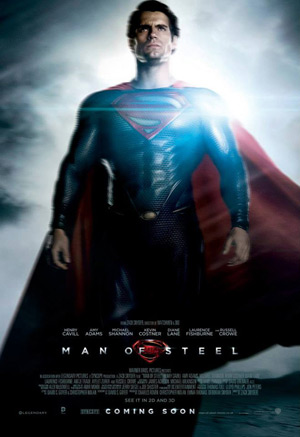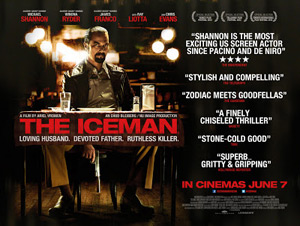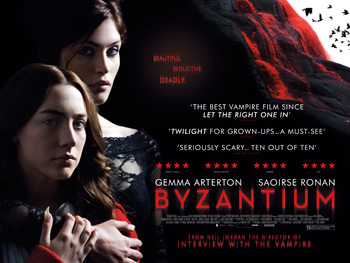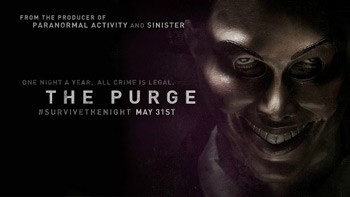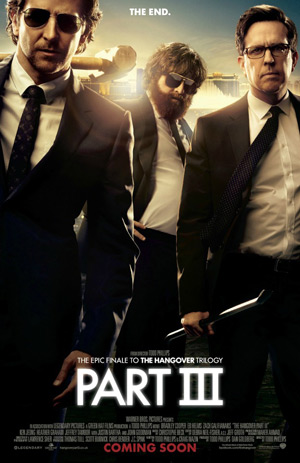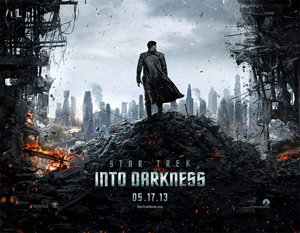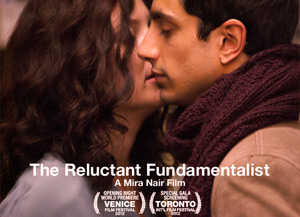World War Z ***
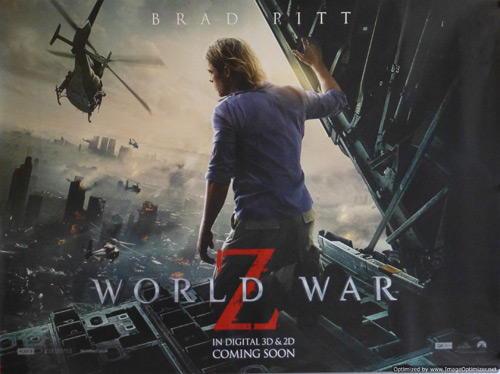 Brad Pitt tries his hand at some zombie dodging in Quantum of Solace director Marc Foster’s new latter-day nightmare, World War Z. Just the title alone strikes fear into our hearts of global wipe-out, least an epidemic that could kill off mankind through some failing of our own making. It’s this that initially sets the chills for this epic, followed by Pitt as former UN investigator Gerry Lane witnessing the first chilling and swift transformation of humans into zombies in the midst of NYC’s rush hour. Naturally, he has his family to save before the rest of the planet – you get the drift thereafter.
Brad Pitt tries his hand at some zombie dodging in Quantum of Solace director Marc Foster’s new latter-day nightmare, World War Z. Just the title alone strikes fear into our hearts of global wipe-out, least an epidemic that could kill off mankind through some failing of our own making. It’s this that initially sets the chills for this epic, followed by Pitt as former UN investigator Gerry Lane witnessing the first chilling and swift transformation of humans into zombies in the midst of NYC’s rush hour. Naturally, he has his family to save before the rest of the planet – you get the drift thereafter.
The plot is such that retired Lane is brought back (kicking and screaming) into the fore to help investigate the root cause of the rapid zombie transformation that is spreading like wildfire across the global. The chase ends in Wales (the location of W.H.O. HQ) where Lane is on the trail of a possible deterrent…
Let’s face it, it’s Pitt, hubby of Jolie and real-life ambassador of various global causes, so stretching the imagination to picture him in this role is hardly an issue. Indeed, dressed in globetrotting, frontline journo attire, he depicts a humble picture full of strength and purpose, as well as a softer side of a man who cares. As it’s Pitt, his name alone will seal the deal at the cinema. The second thing to guarantee intrigue is just how much attention Foster has paid to his special effects in this countlessly re-written final product; the swarm-like the zombies multiplying, in particular, like some video game on speed. There is a fantastic shot of the mounting Undead trying to break into Israel’s Holy Land, followed by a breakdown of the defences that sticks in the mind long after viewing.
The rest feels rather like other apocalyptic action dramas we’ve seen before, from Contagion to Perfect Sense to Zombieland itself (minus the dark humour). It seems downtown NYC is always hit first with flying debris that always ‘just’ misses our fleeing hero and family. Plus there’s the regulation offshore Naval vessel housing the best technology can offer, as well as sanctuary for top brass, all kitted out ready (having been tipped off from the start). Still, with elements copied straight out of other dramas, there are some nice one-to-one moments of action between Pitt and others in the calmer moments between zombie feasting, where Pitt can demonstrate Lane’s humanitarian nature and family-man caring side.
All Lane’s tireless zombie dodging that leads him around the world (including Korea etc) ends in Wales (of all places). The answer to the Earth’s human demise lies in Pitt as Lane creeping around laboratories trying not to disturb an (unintentionally) hilarious bunch of brain-dead scientists gumming the windows. It’s not so much terrifying but does provide a few thrilling moments and jumps, complete with Malcolm Tucker aka actor Peter Capaldi biting his nails as he watches the ‘action’ unfold. The ending is as clichéd as they come but is order restored? It doesn’t really matter, as long as Pitt wins the day (for now).
3/5 stars
By @FilmGazer


